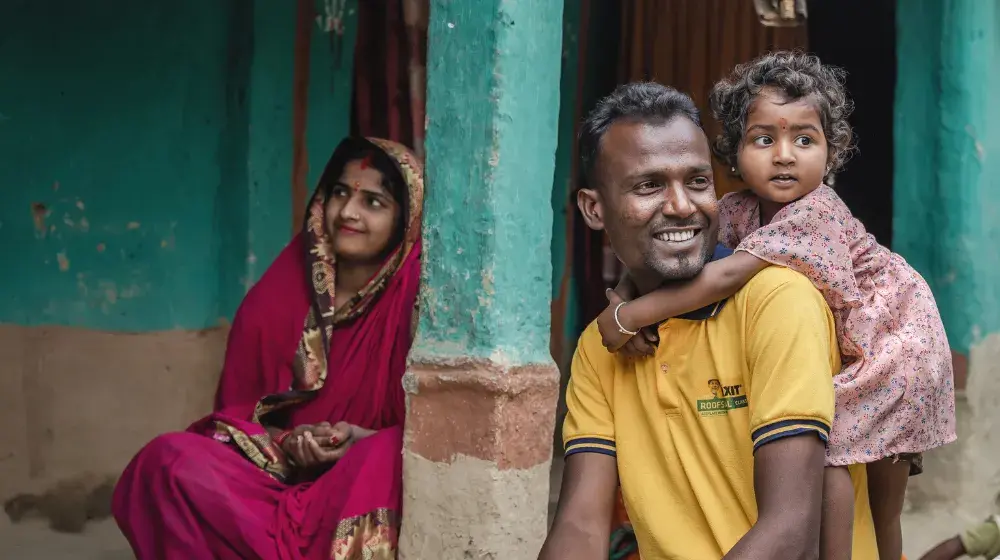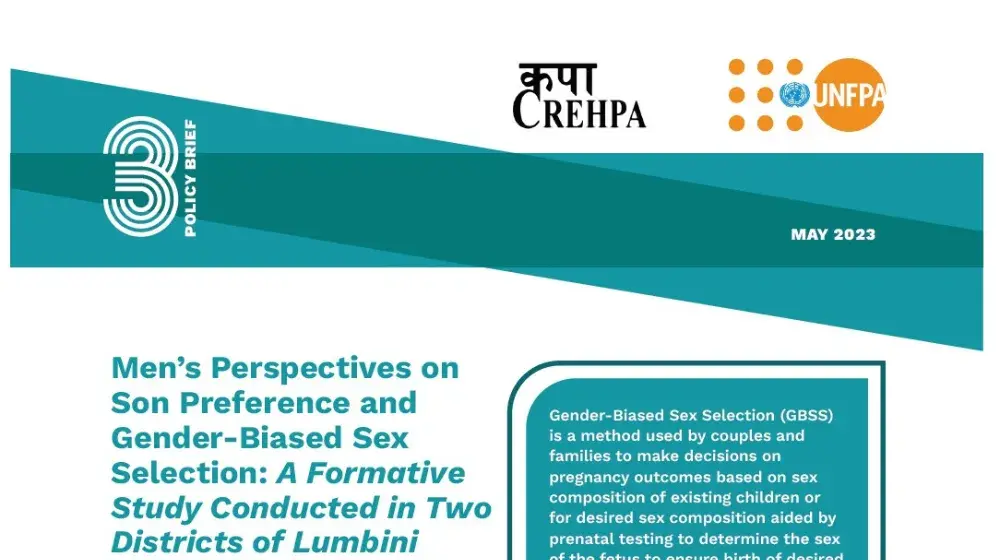KATHMANDU – Gender-based violence (GBV) remains an unresolved issue, both globally and in Nepal. Due to harmful societal norms and unequal power relations, women, men and third gender can be victims of GBV. In Nepal, women and girls suffer disproportionally from GBV, resulting in physical, mental and psychological distress.
A Government of Nepal 2013 study reported that 25 percent of the currently married women studied had experienced physical or sexual violence perpetuated by their spouses during their life time. Unfortunately, according to the 2011 Nepal Demographic Health Survey, 61 percent of women who had experienced violence had never told anyone about it and only 13 percent of the 900 women surveyed were aware of specific laws against domestic violence.
UNFPA, the United Nations Population Fund, has long supported programmes to end GBV in Nepal. The Ministry of Health, Jhpiego and UNFPA worked together with other partners to develop a Protocol for the clinical management of GBV and a competency-based training package to ensure comprehensive knowledge among health workers, including doctors and nurses, on the provision of appropriate care to GBV survivors. A number of training sessions have already been conducted, including one recently in Kathmandu, as part of a project supported by the Swiss Agency for Development and Cooperation (SDC).
One of the participants of the training was Dr. Yub Raj Neupane. When asked why he became interested in developing his skills, he said: “In the hospital in Dhangadhi where I work, I see cases of GBV almost every day. I’ve seen women and girls beaten by their husbands and many more similar cases”.
“I learned how to provide services to GBV survivors while taking into account factors such as confidentiality, safety and empowerment,” says Alisha Dhakal. ©UNFPA Nepal/Seungyoung Hong
Alisha Dhakal, a training coordinator from Okhaldhunga district has a similar experience. “I’ve been working as a coordinator for the last four months and within that short period of time, 6 GBV cases were reported. There are so many survivors in our society, yet the lack of information and awareness often becomes a barrier for them.”
Sharing his thoughts on the training modality Dr. Neupane emphasized that it was very different from others he had received in the past. “Due to the fact that it was competency based, materials were sent to us months before the actual training. Since we were able to prepare beforehand, everyone was already well oriented when the training began.”
This training was designed using the on-the-job training approach to focus specifically on competencies. Instead of relying on a traditional way of training where participants are simply given knowledge, this new training model helped the participants acquire skills through interactive methods which encouraged dialogue, discussion and learning by doing.
The participants met for 9 hours a day, and took part in discussions on how to identify and treat GBV survivors in a gender sensitive manner. “I learned how to provide services to GBV survivors while taking into account factors such as confidentiality, safety and empowerment,” said Dhakal.
The training emphasized that survivors of GBV often lack information on how and where to seek help, and many women and girls hold back from reporting cases of GBV in fear of being punished or shunned by their families and communities. In this context it is recognized that health-care providers are often the first professional contact for survivors of GBV including sexual assault. Hence, the training is meant to equip health care providers with the necessary competencies to provide proper care to GBV survivors, as well as to strengthen the multi-sectoral response to GBV.
Arpana Adhikari from Udayapur district noted, “We have worked with many survivors in our district but there is always lack of documentation. This training emphasized the importance of proper documentation in a proper format when it comes to providing justice for the survivors.”
Awareness of GBV has risen significantly over the years in Nepal. In addition to the government’s endorsement of the clinical protocol on GBV, health workers all over the country are committed to providing proper care and justice for the survivors. All the participants were in agreement that GBV remains grossly underreported.
“Survivors are often still very afraid of reporting because they are scared of the consequences that may come with it, such as more violence,” said Dr. Neupane. “We have to make sure to be sensitive when providing our services, along with the community and the government. Safety measures must be a priority and we need to work towards empowering women financially and legally so that they can live a healthier life.”
The weeklong training also focused on how health workers can strengthen the multi-sectoral response to GBV including by working together with the police and the legal system. Without the right skills, health workers may treat only immediate complaints related to GBV, and oftentimes health workers are not taught how to collect medico-legal evidence to be used in court.
Dr. Saroja Pande, one of the training instructors says: “There’s still a long way to go but I’m extremely happy that we are starting to make changes." ©UNFPA Nepal/Seungyoung Hong
Dr. Saroja Pande, a consultant at Paropakar Maternity and Women’s Hospital and one of the training instructors, said, “Most of the time we only see the tip of the iceberg but there are so many unreported cases of GBV in our country. There’s still a long way to go but I’m extremely happy that we are starting to make changes. Throughout the training, I felt how passionate those health workers were towards learning how to introduce changes in their communities. We may not be perfect, but we all are more than open to continuously updating and revising measures to provide the best care for the survivors and help them get back on their feet.”
The health workers who participated in the trainings conducted so far will in turn help to develop the skills of frontline health workers back in their communities, and strive to protect the needs and rights of GBV survivors.




